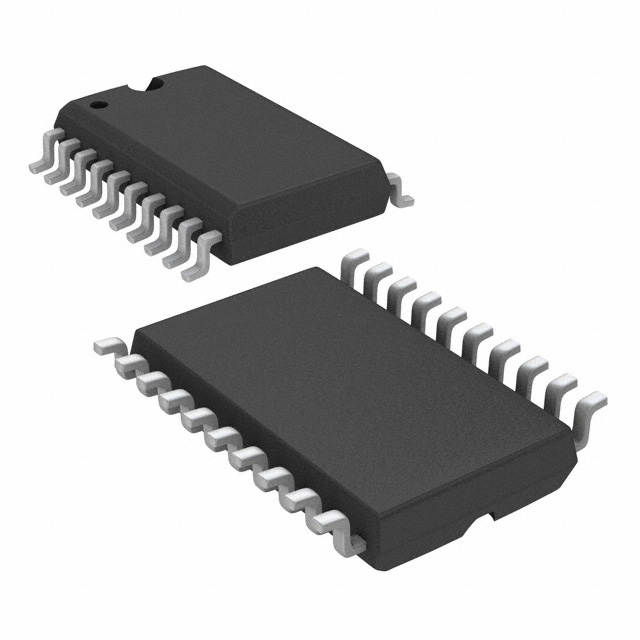SN74BCT29825DWRG4
Manufacturer No:
SN74BCT29825DWRG4
Manufacturer:
Description:
IC FF D-TYPE SNGL 8BIT 20SOIC
Datasheet:
Delivery:





Payment:




In Stock : 0
Please send RFQ , we will respond immediately.









SN74BCT29825DWRG4 Specifications
-
TypeParameter
-
Package / Case24-SOIC (0.295", 7.50mm Width)
-
Supplier Device Package24-SOIC
-
Mounting TypeSurface Mount
-
Operating Temperature0°C ~ 70°C (TA)
-
Input Capacitance5 pF
-
Current - Quiescent (Iq)16 mA
-
Voltage - Supply4.5V ~ 5.5V
-
Current - Output High, Low24mA, 48mA
-
Trigger TypePositive Edge
-
Max Propagation Delay @ V, Max CL7.8ns @ 5V, 50pF
-
Clock Frequency125 MHz
-
Number of Bits per Element8
-
Number of Elements1
-
Output TypeTri-State, Non-Inverted
-
TypeD-Type
-
FunctionMaster Reset
-
PackagingTape & Reel (TR)
-
Product StatusObsolete
-
Series74BCT
The SN74BCT29825DWRG4 is a specific type of integrated circuit chip, namely a 9-bit universal shift/storage register with three-state outputs. Here are some advantages and application scenarios for this chip:Advantages: 1. Fast Operation: It operates at a high-speed clock rate, making it suitable for applications requiring quick data transfer or manipulation. 2. Versatile Functionality: With universal shift and storage capabilities, it can be used for various applications that involve data serialization, deserialization, or storage. 3. Three-State Outputs: The chip's three-state outputs provide flexibility in connecting it to other components or devices, enabling control over the data flow in a system. 4. Wide Supply Voltage Range: It is designed to work with a wide range of supply voltages (2 V to 6 V), accommodating various power supply configurations in different applications.Application Scenarios: 1. Serial Communication: The chip can be used in serial data communication systems for data conversion, parallel-to-serial or serial-to-parallel shifting, and storage operations. 2. Data Multiplexing: It is useful in applications where a single data source needs to be distributed or selected for multiple destinations using efficient data transmission methods. 3. Data Storage and Register Applications: The chip can function as a buffer or a temporary data storage element in microcontrollers, data acquisition systems, or digital signal processing systems. 4. Data Synchronization: It can be employed to align or synchronize data streams coming from different sources, ensuring accurate data processing and manipulation. 5. Memory Modules: The chip can be integrated into memory modules or systems such as cache memory, where data serialization/deserialization or temporary storage is required.Please note that the specific application scenarios may vary depending on the requirements and design of a particular electronic system. It's essential to refer to the chip's datasheet and consult with experts in chip integration for accurate and optimal utilization.
SN74BCT29825DWRG4 Relevant information







